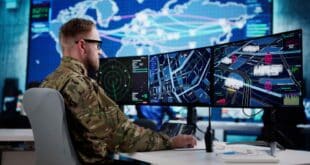Will Tesla Robotaxi revolutionize transportation or open Pandora’s boxes of AI-related risks we are not prepared to face? Photo by Shutterstock.
Elon Musk, the visionary CEO of Tesla, is committed to making self-driving car a reality. Elon Musk’s visionary company Tesla is now entering a new phase, namely autonomous vehicles. Tesla sells everything from solar cells to massive batteries to electric cars. Tesla was almost bankrupted in 2012, when the Model S was released. Now it is one of the world’s most influential companies. How did this happen, and what does the future hold? What lies ahead?
Tesla may seem like another car maker, but the company is likely developing the biggest real-world AI program on Earth. The company’s Robotaxi project, which has been teased in social media, could change not only how we drive but also how we work, travel, and live.
From Concept to Reality
Elon Musk has stoked the anticipation of Tesla’s Robotaxi, which is yet to be released on the roads. He tweeted this on June 11th 2025.
“We’re being paranoid, so we could change the date.” Musk wrote on X that the first Tesla to drive itself from the factory end of the line all way to a home is scheduled for June 28.
The model is called the CybercabTesla employees are the main testers of. Although not yet available to the public, Tesla hopes to start limited trials in real life soon.
What is the long-term strategy? Cybercab mass-produced by 2027, without steering wheel or pedals and selling it for $30,000. Tesla wants to build a network of driverless ride-hailing cars where customers can summon cars using an app. No human drivers are required.
What is the largest AI project that has been disguised?
Tesla is unique because of its data-centric strategy. Each Tesla on the road trains the company’s neural network, making every car a node of a global AI project. Musk’s vast, decentralized fleet feeds data into what he hopes will be the most advanced autonomous system ever created.
Tesla, unlike its competitors who use expensive LiDAR technology, relies on AI and camera vision. This software-first strategy comes with complexity and risk.
Security: Risks Beneath the Surface
The promises of autonomous vehicles are accompanied by serious safety and cybersecurity concerns. Experts warn of the potential for autonomous vehicles to be exploited.
- Remote hacking — Previous research has shown connected vehicles can be hijacked, steering and brakes included.
- Sensor deception — Adversarial tricks like modified street signs can fool visual systems into unsafe behaviour.
- Weaponisation or criminal misuse — The UN has even warned that self-driving vehicles could be repurposed for terrorist acts if not tightly secured.
Tesla responded by focusing on security measures, but critics claim that full-scale deployment is premature without an industry-wide approach.
Data, Privacy and Power
Robotaxis can capture huge volumes of data, including passenger movements, car conversations, facial recognition technology, and driving habits. Uncertain regulation raises questions:
- Who is the owner of this data?
- How will it be used
- Can it be shared or misused without consent?
Legislators in regions such as the EU are pushing for more privacy and AI regulations. The US regulatory landscape is patchy and leaves much of the responsibility with companies like Tesla.
Where We Are Now and What’s Next
Tesla’s Robotaxi is still in the development stage. Musk has not yet achieved his June 28th goal, but it would be a significant step forward if Musk is able to achieve this. Musk envisions self-driving Teslas that can earn passive income while owners sleep, reduce traffic fatalities, and transform urban landscapes.
This date is still not fixed. Musk said, “We are super paranoid about security.” It’s not without reason that the road to automation is lined with both opportunity and liability concerns, as well as unknown edge cases.
Will Tesla’s Robotaxi revolutionize transportation or open Pandora’s Box of AI risks that we aren’t ready to face yet?
We’ll soon find out.
 Costa News Spain Breaking News | English News in Spain.
Costa News Spain Breaking News | English News in Spain.






